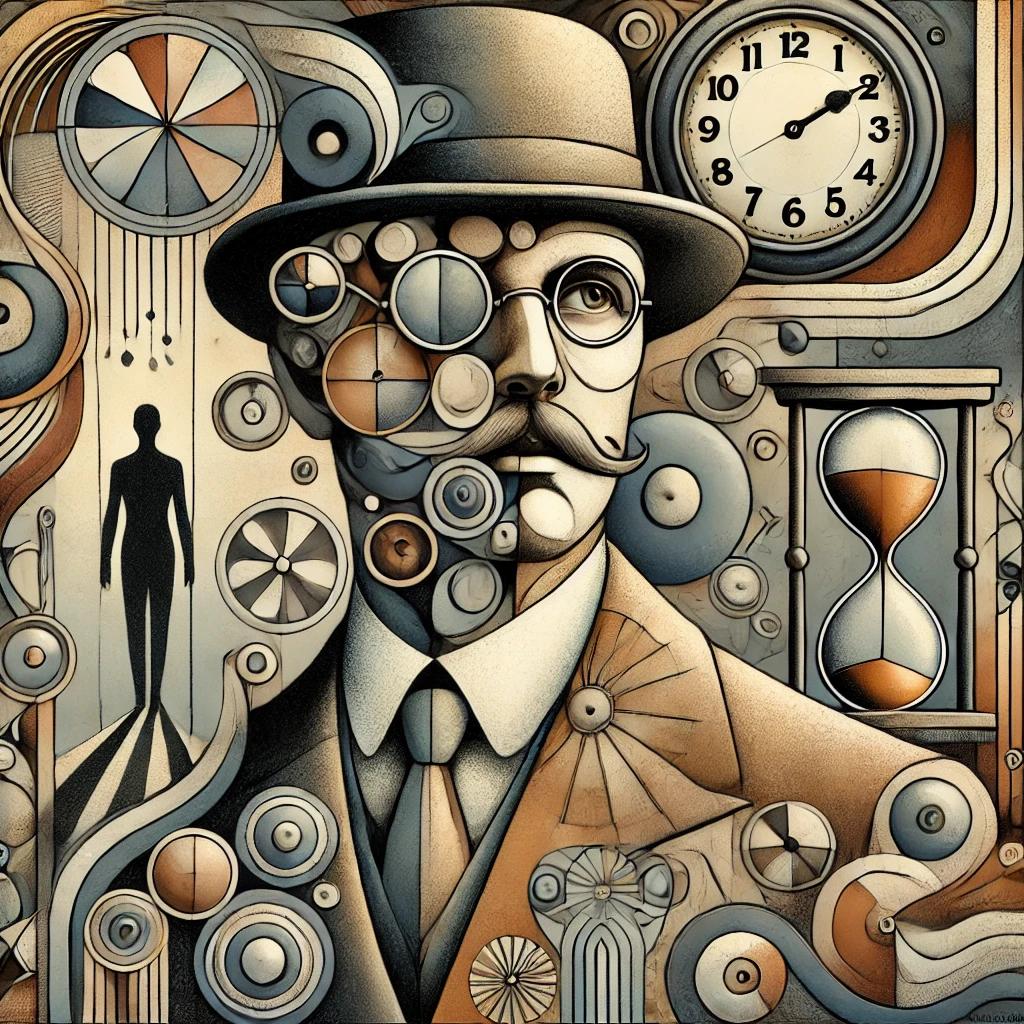Modernism

Place of Origin: Global (roots in Europe and North America)
Century of Origin: Late 19th-20th Century CE
Associated Philosophers:
Overview of Modernism
Modernism is a cultural and philosophical movement that emerged in the late 19th and early 20th centuries. It was a response to the rapid changes brought by industrialization, urbanization, and new technologies. Modernism focuses on breaking away from traditional ways of thinking, embracing new ideas, and questioning established norms in art, literature, architecture, and society. This movement encourages experimentation, innovation, and the belief that individuals can create new ways of understanding the world. Modernism often emphasizes progress, human potential, and the idea that people can shape their own futures.
The metaphysics of Modernism is rooted in the idea that reality is not fixed or absolute but can be shaped by human understanding and creativity. Modernists believed that the world is constantly changing and that traditional beliefs and structures no longer fit with the modern age. They rejected old ways of thinking that emphasized unchanging truths, arguing instead that reality is dynamic and that people have the power to redefine their own experiences and perceptions. This view encourages flexibility, openness to new ideas, and a belief in the possibility of progress.
In Modernism, knowledge is seen as something that evolves over time, shaped by new discoveries, technologies, and ways of thinking. Modernists argue that we should constantly question old assumptions and be open to new methods of understanding the world. They emphasize the importance of reason, science, and experimentation as ways to gain knowledge, rejecting the idea that we should rely on tradition or inherited wisdom. For Modernists, knowledge is always progressing, and they value critical thinking and intellectual curiosity as ways to move society forward.
Ethics in Modernism focus on individual responsibility, freedom, and the pursuit of progress. Modernists believed that people should be free to make their own moral choices, rather than being bound by outdated social or religious norms. They encouraged individuals to question authority, challenge the status quo, and think for themselves. Modernist ethics often emphasize the importance of personal growth, self-expression, and the belief that people can improve both themselves and society through innovation and new ways of thinking.
Modernism embraces logic and reason as essential tools for understanding the world and making progress. Modernists believed that through rational thinking, humans could solve problems, improve society, and unlock new knowledge. However, they also recognized that traditional systems of logic might not always apply in a rapidly changing world. As a result, Modernism encourages flexibility in thinking and the willingness to explore new forms of logic that fit with the complexities of modern life. It promotes a balance between reason and creativity, acknowledging that logical thought can drive progress while new ideas spark innovation.
In Modernism, aesthetics are centered on breaking away from traditional forms of art and embracing experimentation, innovation, and abstraction. Modernist art often rejects classical beauty and realism, instead focusing on bold, new ways of expressing ideas and emotions. Artists during this movement used abstract shapes, fragmented structures, and unconventional techniques to reflect the complexities of the modern world. Modernism values originality, creativity, and the idea that art should challenge viewers to see the world in new ways. It encourages artists to push boundaries and explore new artistic possibilities.
The methodology of Modernism involves questioning tradition and exploring new ways of thinking. Modernists believed that the old ways of understanding the world were no longer adequate for the rapidly changing modern era. They emphasized experimentation, critical thinking, and a willingness to break free from established ideas. Modernist philosophers, writers, and artists used unconventional methods to challenge traditional beliefs and to explore new forms of expression, believing that innovation and creativity were essential to progress.
Modernism views humans as beings with the potential to shape their own destinies and create new ways of understanding the world. Modernists believed that people are not bound by tradition or fixed identities, but that they can reinvent themselves through creativity and reason. This philosophy teaches that individuals have the freedom to challenge societal norms and to seek personal growth through innovation and self-expression. Modernism emphasizes human potential, encouraging people to explore new possibilities and to take an active role in shaping their own lives and the future of society.
The political philosophy of Modernism is often associated with progressivism, the belief that society should constantly improve through reform and innovation. Modernists supported political movements that aimed to modernize society, such as expanding democracy, promoting education, and embracing new technologies. They often called for the removal of outdated institutions and the creation of new systems that reflected the values of the modern world. Modernism’s political philosophy encourages individual freedom, social progress, and the belief that humans can solve the challenges of modern life through reason and creativity.
Modernism emerged in the late 19th and early 20th centuries as a response to the rapid changes brought about by industrialization, scientific advancements, and world events like the two World Wars. Philosophers, writers, and artists such as Friedrich Nietzsche, Virginia Woolf, and Pablo Picasso contributed to the movement by rejecting traditional forms and embracing new ways of thinking. Modernism became a dominant cultural force in the early 20th century, influencing art, literature, architecture, and philosophy. It sought to break away from the past and to explore new ideas that reflected the complexities of the modern world.
Important themes in Modernism include the rejection of tradition, the embrace of innovation, and the belief in human progress. Modernists focused on the idea that individuals could shape their own futures through creativity, reason, and experimentation. Other key themes include the questioning of established norms, the exploration of new ways of understanding reality, and the idea that art and culture should reflect the changing world. Modernism also emphasizes the importance of self-expression and personal freedom, encouraging people to challenge outdated ideas and to think in new and innovative ways.
Friedrich Nietzsche is one of the most significant philosophers associated with Modernism, known for his critiques of traditional morality and his call for individuals to create their own values. Other important figures include Virginia Woolf, who used experimental writing techniques to explore human consciousness, and James Joyce, whose novel 'Ulysses' is considered a masterpiece of Modernist literature. In art, Pablo Picasso’s work helped redefine modern aesthetics, while architects like Le Corbusier introduced new styles that reflected the principles of Modernism.





